{ REXSHIELD }
RexShield Glossy Affinity
GLOSSY Affinity – Ready to Use Sealer – 8 oz Sample
The ultimate ready-to-use glossy sealer
RexShield Glossy Affinity is the ultimate, professional grade, ready-to-use sealer for concrete, epoxy, natural stone, VCT, LVT, LVP and all tile and grout substrates. It is the most technologically advanced ready-to-use sealer on the market. It is the most technologically advanced ready-to-use sealer on the market that will leave a glossy finish on the treated surface.
Various larger sizes and bulk ordering available upon request.
8 Oz | 1 Pint | 1 Quart | 1 Gallon + Bulk
$40.00
Additional information
| Size | 8 Ounces, 1 Pint, 1 Quart, 1 Gallon |
|---|---|
| Product Line | 2-Part Affinity Product Line |
Product FAQ's
- How many square feet can be achieved with one gallon of Affinity?
If applied over a non-porous substrate – 800 – 1000 sq. ft.
If applied over a porous substrate – 250 – 500 sq. ft. - How long before it can be walked on?
Affinity makes a covalent or molecular bond with the substrate it is applied to. It becomes a part of the substrate and is not to be compared to a sacrificial or mechanical coating/sealer that “sits” on top of the substrate.
Specifications
Downloads
Need Help?
Give us a call!
Tips & Tricks
- Scan the QR Code on the bottle to quickly review a video of the mixing instructions.
- After cleaning the surface to be sealed, make sure it is completely dry including the grout on a tile floor/wall. You can use fans to expedite the drying process. For outdoor surfaces, such as natural stone, wait until the next day to apply the sealer as this then allows enough time for the power washed surface to be dry. Remember to make sure any outdoor sprinkler systems are turned off for 24-48 hours prior to application.
- If when applying Affinity to a surface, you begin to see the product pool or bead up, this is an indication that the product is rejecting the surface for some reason. When this happens, quickly spray 99% IPA onto the product on the surface and wipe it all up. You then need to readdress (clean) the surface as some sort of contaminant is still on the surface – for example, soap scum, wax, previous sealer, etc.
- Affinity can easily be removed if need be with 99% IPA up to 2 (TWO) days after application. After the 2 days, a stripper will be required to fully remove Affinity or you can profile the surface with a black pad and then reapply.
- Affinity is the most successful to adhering to the treated surface when the pH of the surface is neutral. Check the pH of the clean and dry surface prior to application.
- If you need to further neutralize the surface, mop the surface with white vinegar. This will help bring the surface to a neutral pH.
- It is recommended and best practice to work in a 2-person team. This allows one person to be spraying the product down and the other following and gently pulling the microfiber mop over the product. Also, be sure to have a slight overlap from the previous “lane”. Don’t forget to check for missed spots before getting too far away from the “lane”.
- When using a microfiber pad, be sure to spray the microfiber pad with the product and make it completely wet/soaked with the product. This will allow for a smoother application and less streaks.
- It is always recommended to add additional non-slip 220 grit to a surface wherever bare feet may come into contact with water on the floor. For example, always add non-slip to a shower floor.
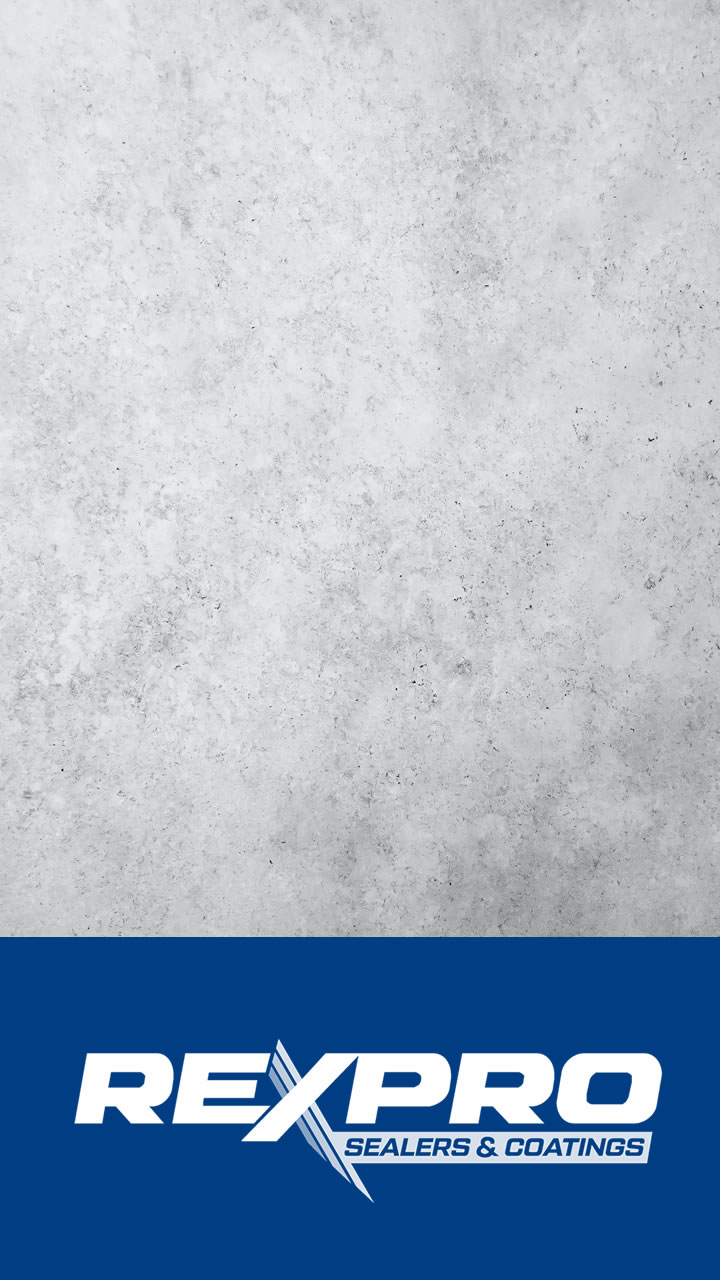
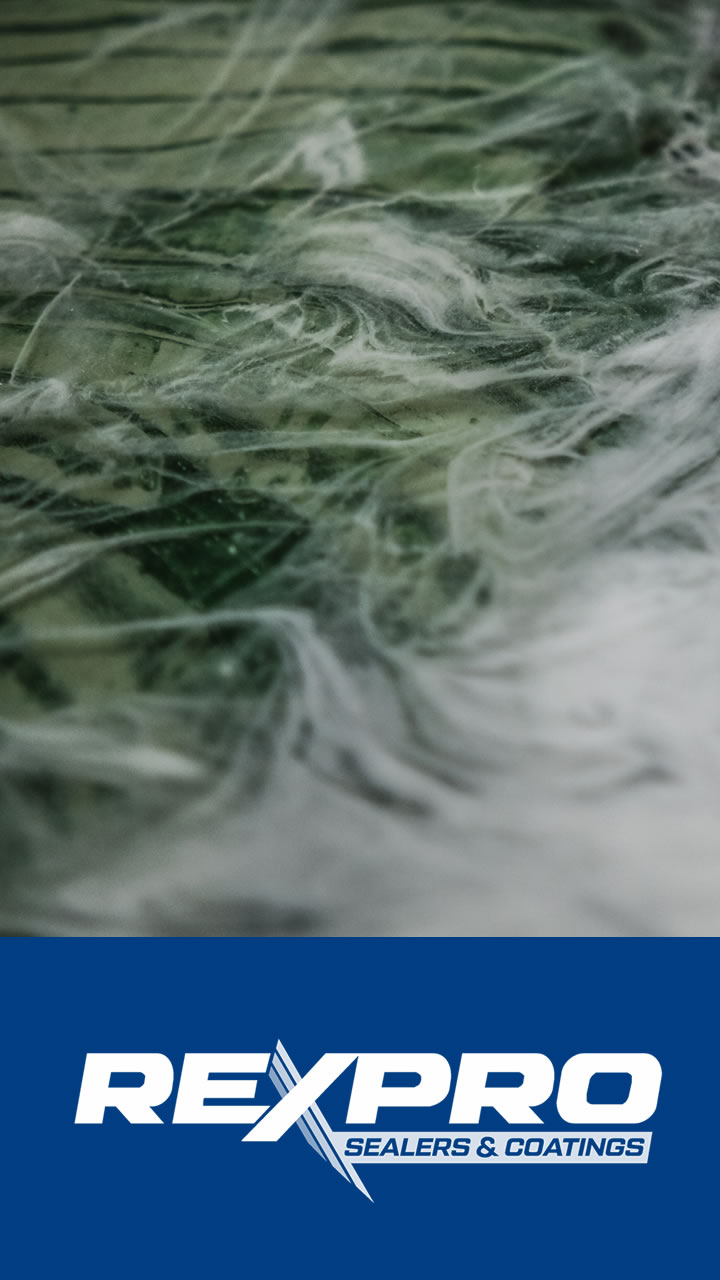
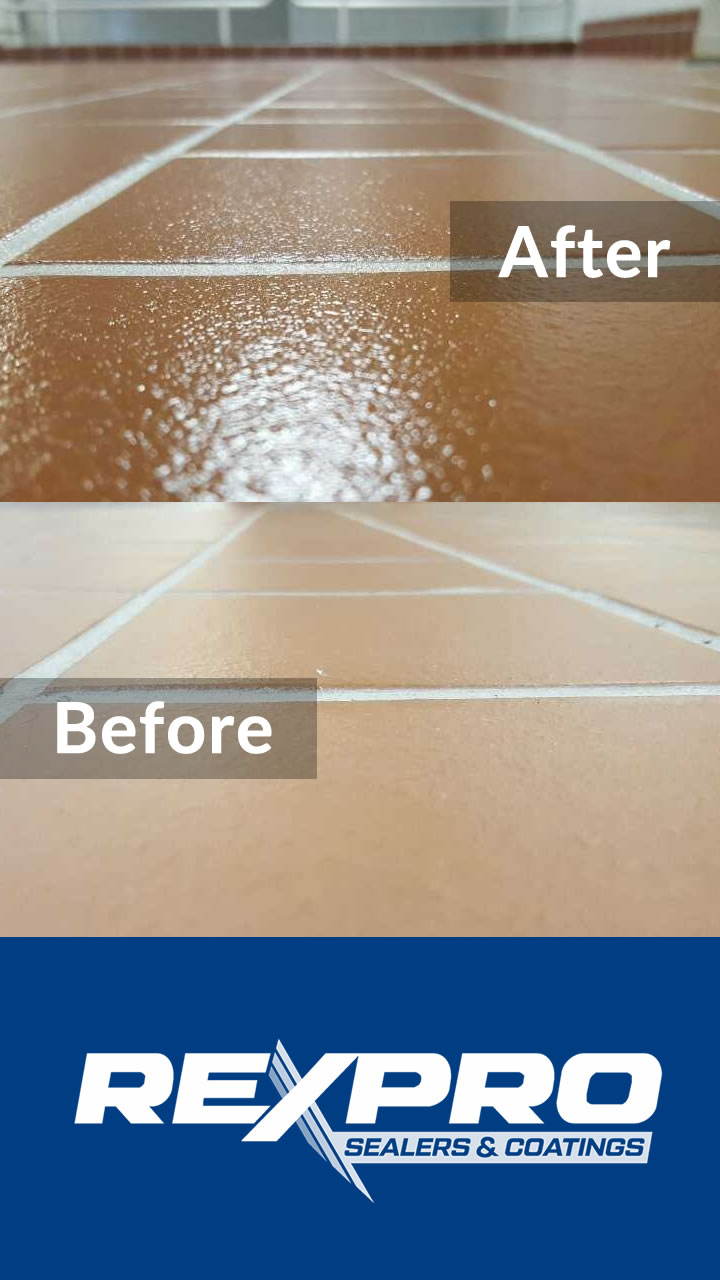
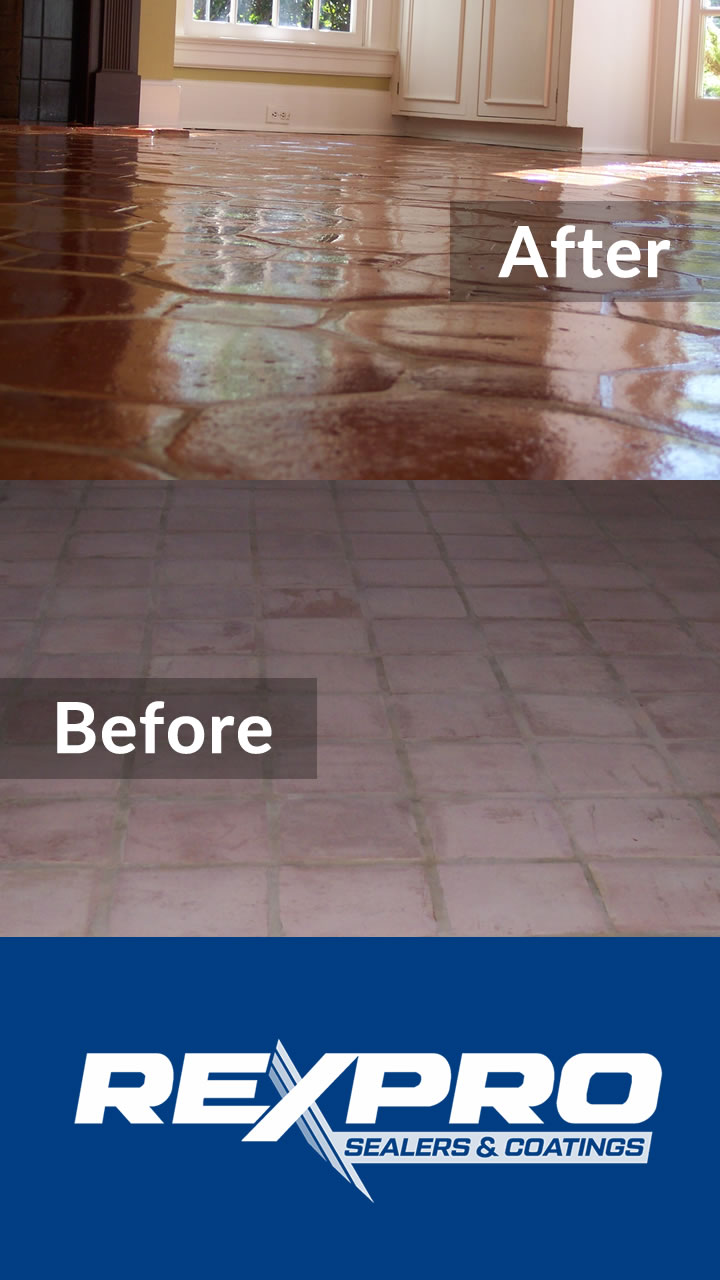
Additional FAQ's
What type of sealer is Affinity – water-based, urethane based?
How many components/parts make up Affinity?
What kind of bond does Affinity make to the substrate it is applied to?
Affinity makes a covalent or molecular bond with the substrate it is applied to. It becomes a part of the substrate and is not to be compared to a sacrificial or mechanical coating/sealer that “sits” on top of the substrate.
What kind of stains will be prevented by Affinity?
TIP: Affinity will even prevent hot tire marks on sealed driveways and garage floors.
What kind of chemicals will not break down Affinity?
What is the Pot Life for Affinity?
How long will Affinity be good if not used right away?
Can I store Affinity in my garage or in the back of my truck?
Can I take a gallon of Affinity and break it into my own half gallon kits, quart kits or smaller?
Can I store any left-over fully mixed product in the refrigerator to use at a later date?
How many square feet can be achieved with one gallon of Affinity?
- If applied over a non-porous substrate – 800 – 1,000 sq. ft.
- If applied over a porous substrate – 250 – 500 sq. ft.
What is the dry time of Affinity?
TIP: Fans can be used to expedite the dry time.
What is the full cure time for Affinity?
What is the best way to clean a floor after it is sealed with Affinity?
TIP: We recommend using our concentrated Safety Clean daily cleanser to not just clean the floor but to also increase the traction of the floor to prevent slips and falls.
How long will the Affinity last on a substrate?
Can I use Isopropyl Alcohol (IPA) from a local drug store or Denatured Alcohol to clean the treated surface right before applying Affinity?
We ONLY recommend using 99% Isopropyl Alcohol (which we carry) to quickly clean the surface to make sure there are no surfactants or soap residue right before applying Affinity as we cannot be certain what the “denatured” chemicals are or what the other %’s of IPA is. For example, with 70% IPA, the remaining 30% may be a lotion or liquid scent oil, etc. and those items may not be compatible with our product.
TIP: We always recommend having at least a gallon of 99% IPA on hand, not only to clean equipment, but also in case you need to quickly remove product that is pooling or rejecting on the sealed surface.
TIP: After cleaning the surface to be sealed, if the floor needs to be neutralized, mop the floor with white vinegar. The floor should be as close to a neutral pH as possible before sealing the surface.
How do you remove Affinity if you see it pooling or rejecting the surface it’s applied to?
How do you remove the Affinity product after it has fully cured (7-days)?
Can Affinity be used over itself as a second coat?
TIP: A second coat would be required if the surface looks streaky or blotchy which is usually the result of not enough product being applied.
When can a second coat/application of Affinity be applied?
How do you reapply Affinity after it has been fully cured or has been several years since it was sealed but has now lost its gloss?
How do you fix a small section that was either missed or did not have enough Affinity applied to it?
First you want to protect the good areas by taping them off. Then focus on the area that requires a touch-up or needs to be fixed by taking a green Scotch Brite pad to the surface and scuff the surface. Then clean the area, make sure it’s dry, and reapply the product.
TIP: You can use a black foam brush to fix small areas.
How do you add the non-slip 220 grit aluminum oxide to the surface Affinity?
TIP: Do not step on the already micro-fibered product. Apply the non-slip as you go. Do not walk back over the product to apply the non-slip.
How much non-slip 220 grit do you recommend to add to Affinity?
You must be logged in to post a review.

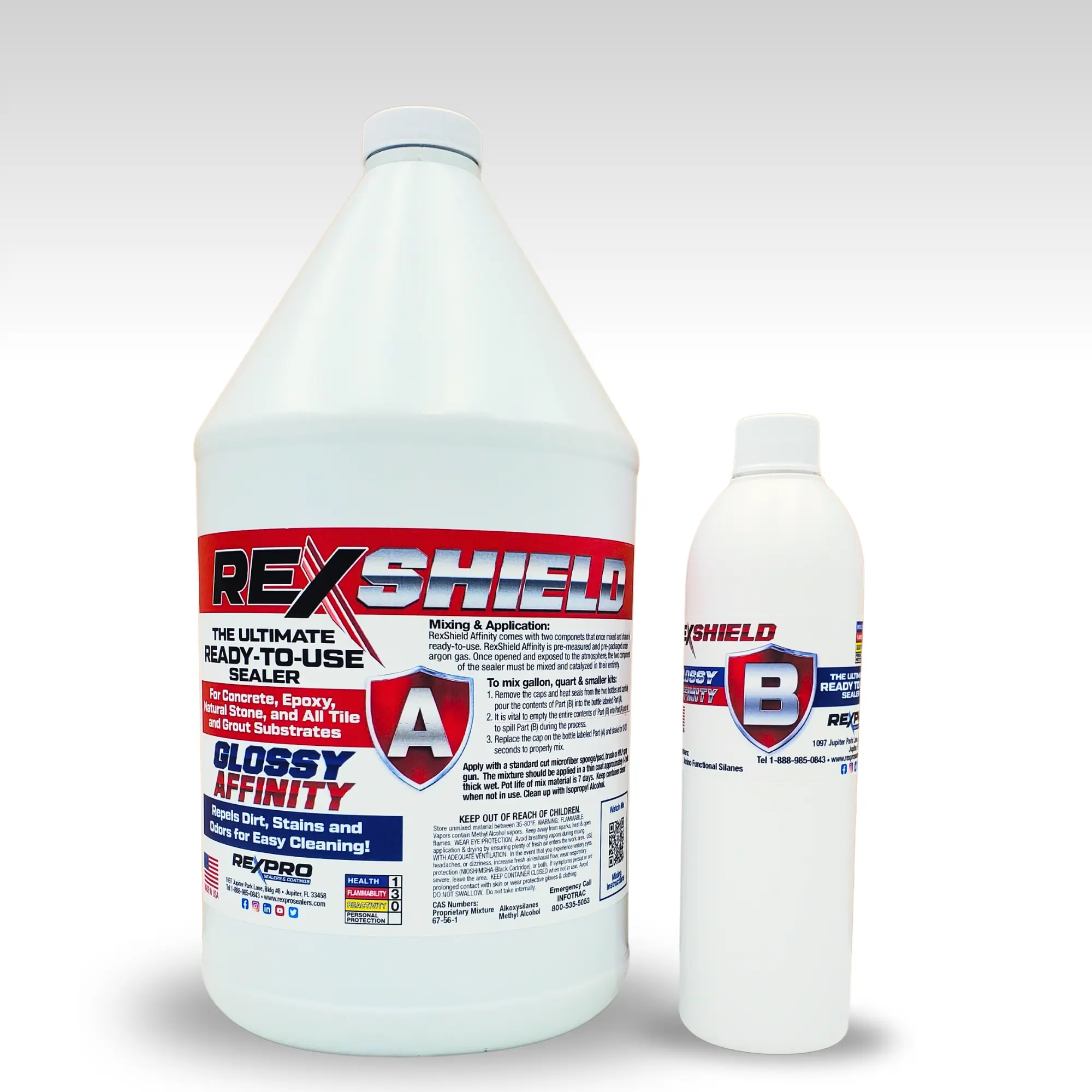
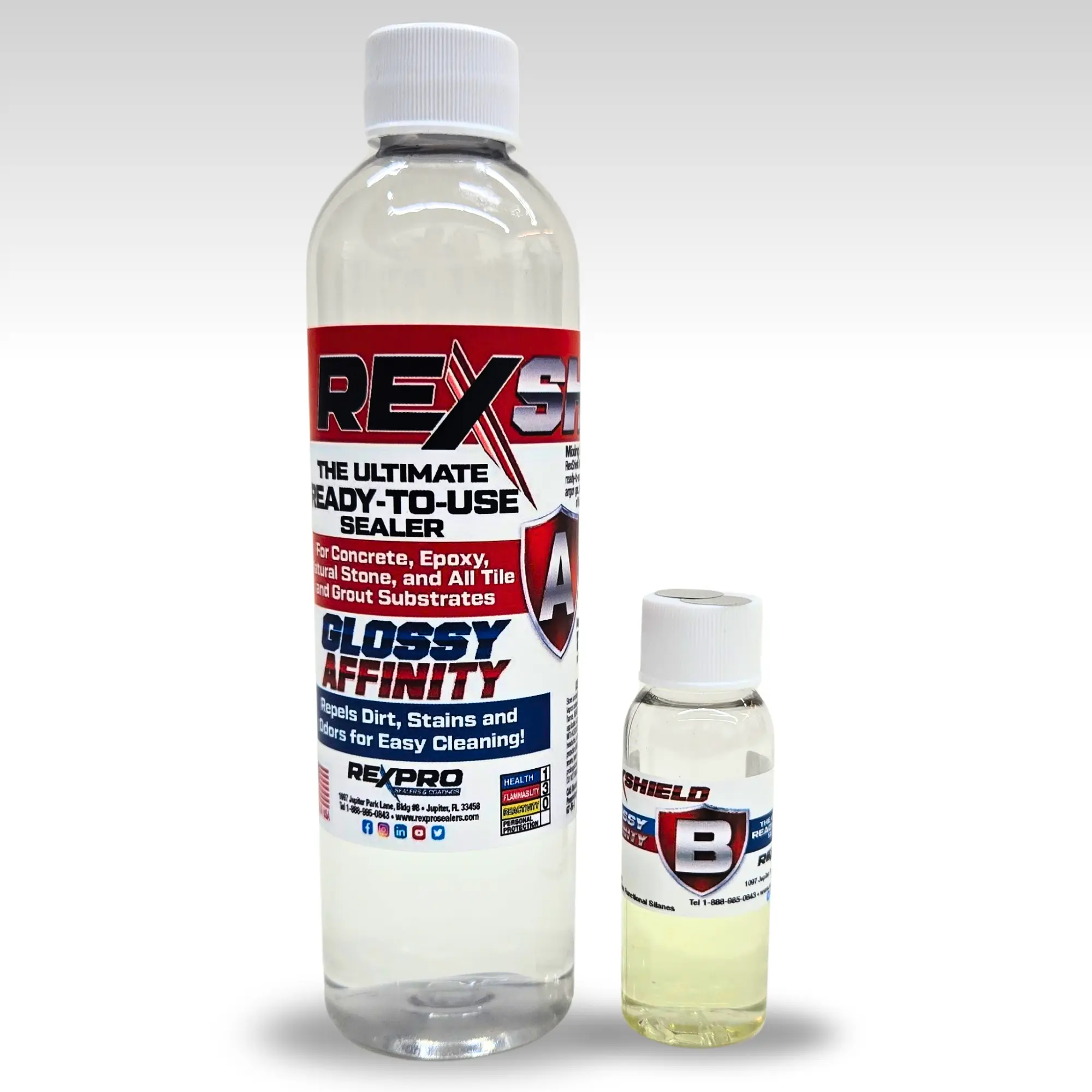
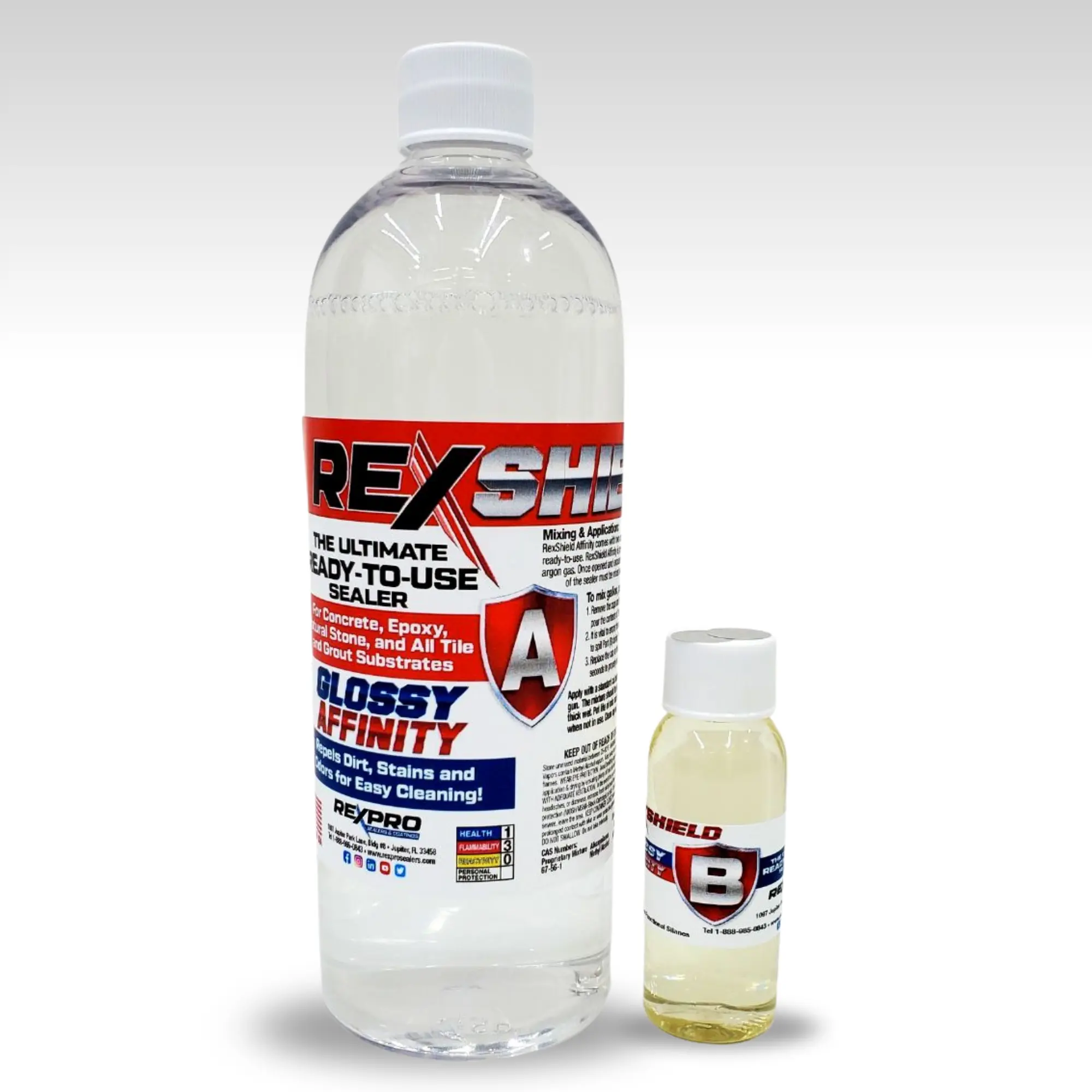
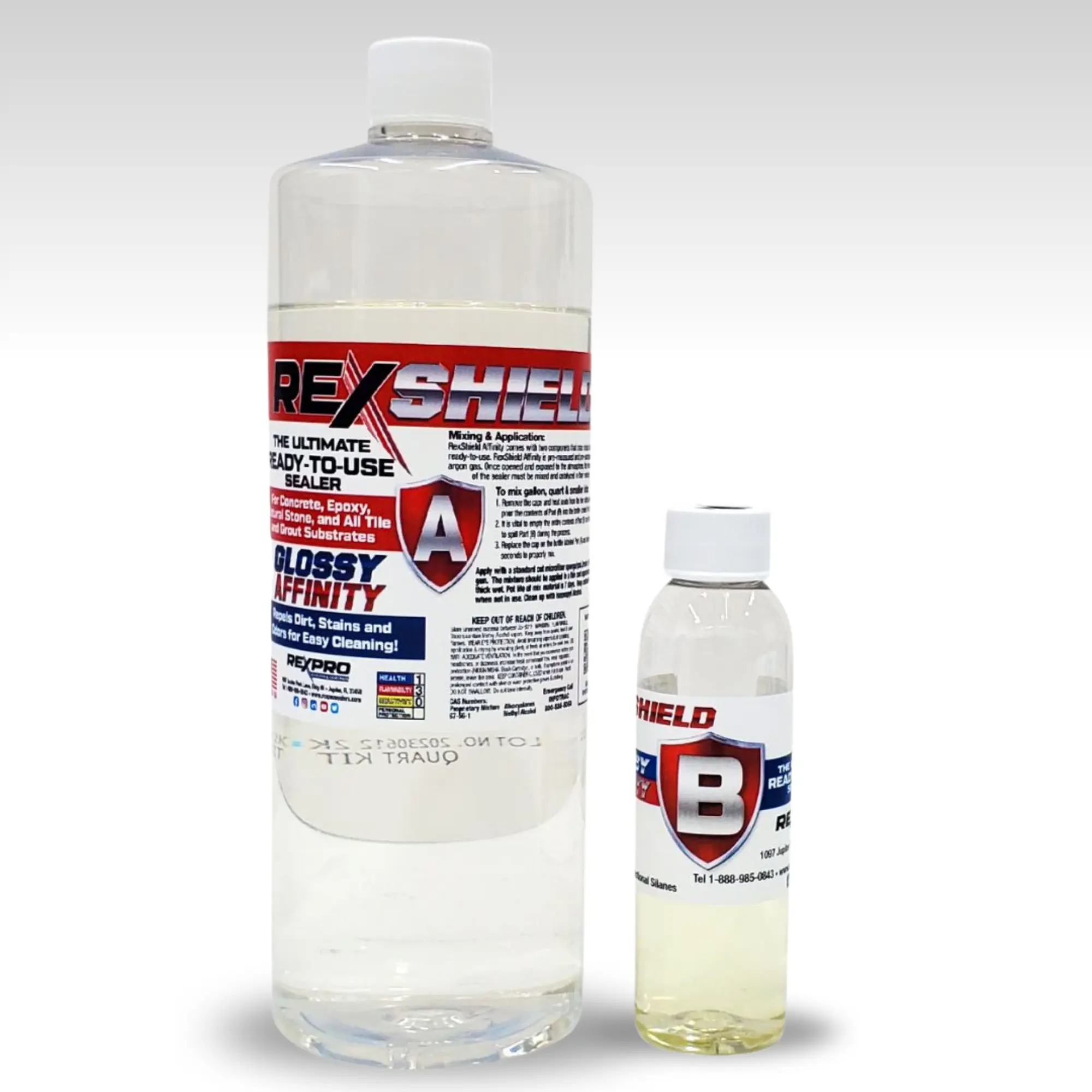

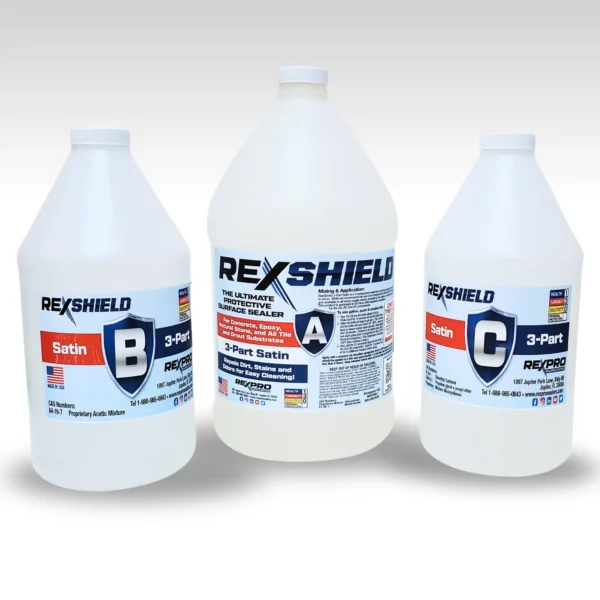
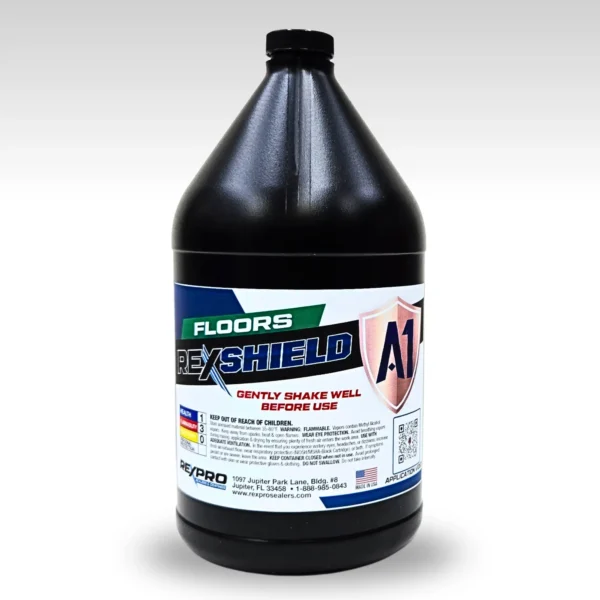
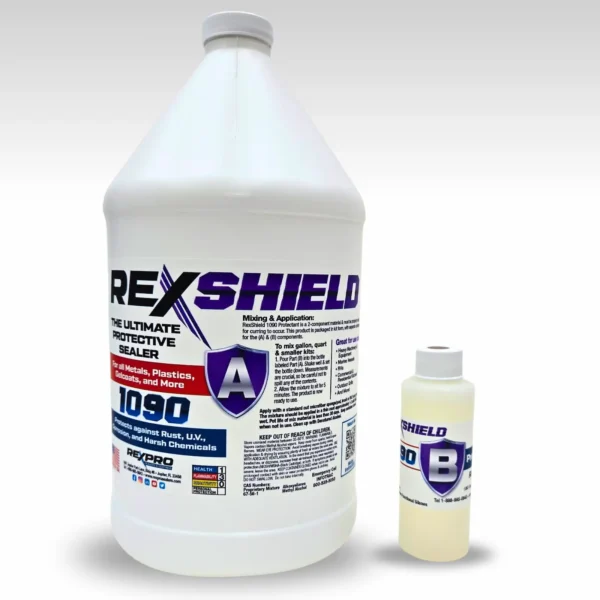
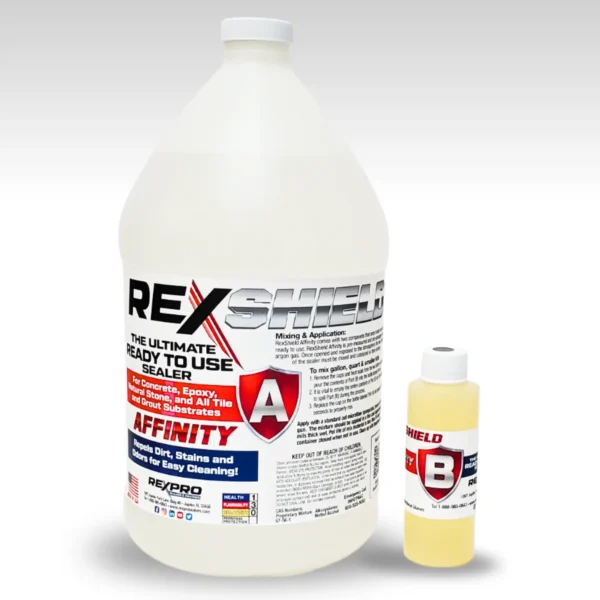

Reviews